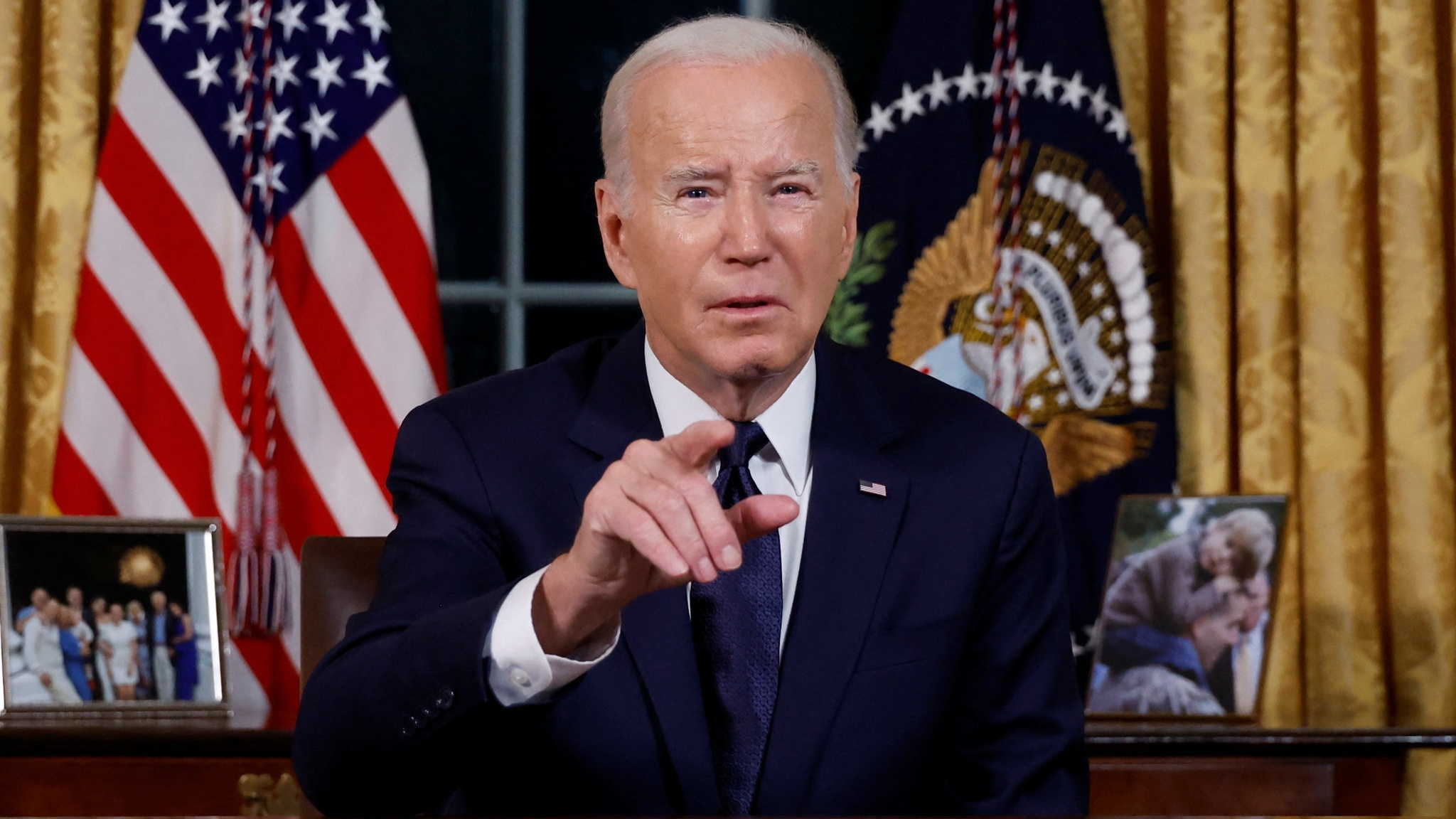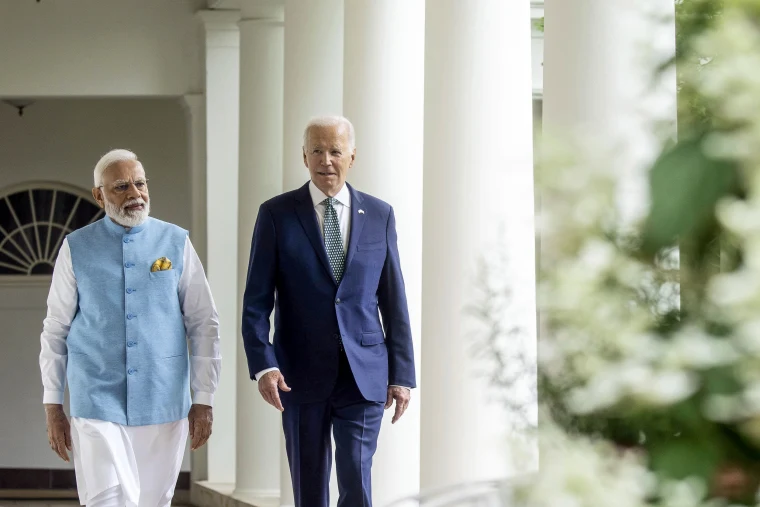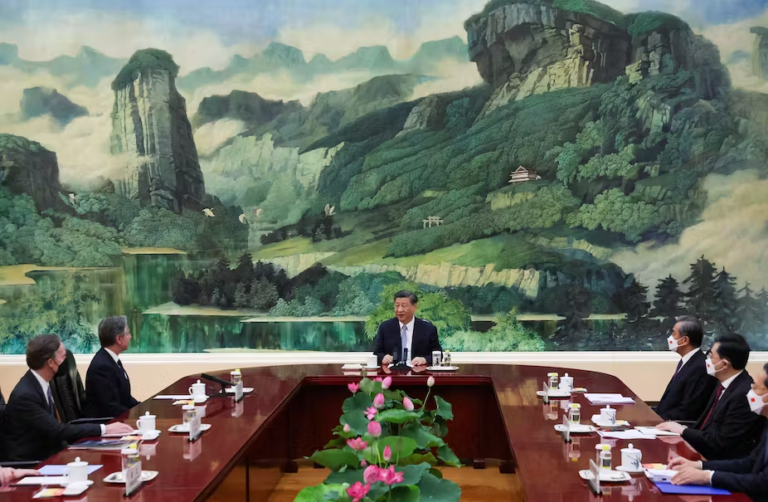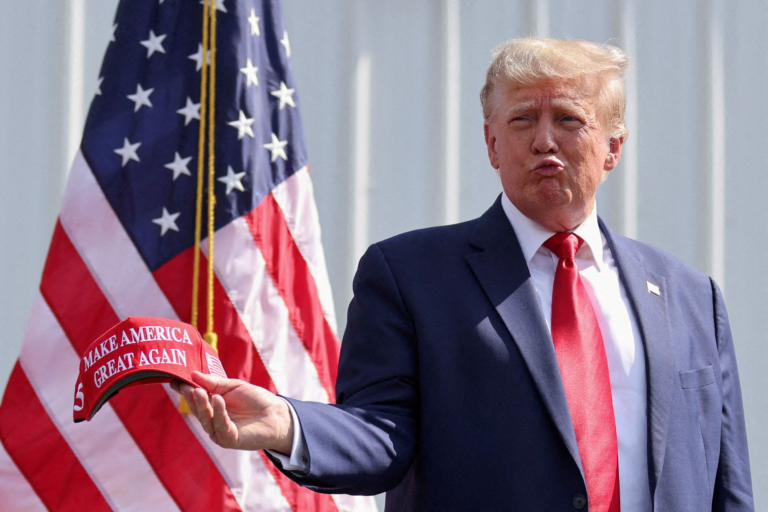WASHINGTON — U.S. President Joe Biden invoked President Franklin Roosevelt’s World War II-era phrase “arsenal of democracy” in an Oval Office speech that sought to convince the nation of the need to support both Ukraine and Israel.
Biden stressed in the nationally televised address on Thursday that the industrial base is working at full capacity to replenish the weapons depots as the U.S. sends military equipment to Ukraine. “Patriot missiles for air defense batteries made in Arizona; artillery shells manufactured in 12 states across the country — in Pennsylvania, Ohio, Texas; and so much more,” he said.
“Just as in World War II, today, patriotic American workers are building the arsenal of democracy and serving the cause of freedom.”
“Arsenal of democracy” was a slogan used by Roosevelt in a radio address in December 1940, a year before the U.S. entered World War II.
His message was that while U.S. troops would not be sent to Europe to fight against Nazi Germany, Washington should provide arms to the U.K. and others to help defend democracy. Roosevelt’s call rallied the government, industry and the military to study advanced defense technologies and to increase production of ships, fighter planes and tanks.
The production surge enabled the U.S. to mount a swift response to Japan’s surprise attack on Pearl Harbor in Hawaii a year later. Soon after, Roosevelt declared war against Japan.
Biden appears to have drawn parallels to today, as Washington sees the need to help Israel, Ukraine and Taiwan defend themselves.
One day after the Oval Office address, the Biden administration submitted a $105 billion funding request to Congress.
Shalanda Young, director of the U.S. Office of Management and Budget, said the request included more than $50 billion for the defense industry.
The money is intended to ensure “our military continues to be the most ready, capable and best-equipped fighting force the world has ever seen,” Young told reporters. “The funding will expand production lines, strengthen the American economy, keep us safe, and create new American jobs.”
Mark Cancian, senior adviser at the Washington think tank Center for Strategic and International Studies, said in a report this month that there are concerns the demand for weapons and ammunition from Israel, Ukraine and Taiwan could overlap.
Munitions that could be in short supply include air defense missiles such as the Stinger and the Avenger, Cancian noted, as the stockpile is believed to be “extremely limited.” He assessed that Israel, Ukraine and Taiwan all need munitions for Patriot air defense systems.
Bunker buster munitions for targets deep underground or well-fortified targets have only a “small overall inventory,” Cancian said. Israel might need bunker busters for ground operations in Gaza, where Islamist militant group Hamas is thought to have established a large network of underground tunnels.
The U.S. is increasing production of Guided Multiple Launch Rocket Systems (GMLRS) and the Excalibur GPS-guided artillery shell for Ukraine.
In the budget request, the White House asked Congress for $3.4 billion to enhance the domestic submarine industrial base. Undersea capabilities are widely regarded as the critical factor in deterring China from invading Taiwan.
The U.S. Navy has about 50 attack submarines, far from its goal of 66. It is estimated that it will take until 2050 to achieve the goal if production capacity is not increased.
Under the AUKUS security pact with the U.K. and Australia, the U.S. has agreed to sell up to five Virginia-class attack submarines to Australia. Yet, there have been growing concerns that the AUKUS deal might delay Washington’s goals for submarine development.
Arthur Herman, a senior fellow at the Washington-based Hudson Institute, expressed concerns that the government is playing a leading role in defense industry innovations.
“The key players in all this are the industry and the military, with government as the intermediary overseeing [and] making sure everything is working and is accomplishing,” Herman said.
The government “should not try to take control of, or dictate, or put on requirements that are going to limit the energy and limit the innovation and productivity in these other two spheres,” he noted.
The biggest challenge for the Biden administration is to secure support from House Republicans, many of whom have demanded large cuts in spending and have been reluctant to continue security assistance to Kyiv. The chaos surrounding attempts to select a new House speaker will hinder congressional deliberations on the supplemental budget.
When Roosevelt called for the arsenal of democracy, there was a group of isolationists in Congress. They spearheaded Congress’ approval the Neutrality Acts in 1930s which prohibited the U.S. from supplying weapons to countries in wartime.
But Roosevelt convinced U.S. voters of the importance of defending democracy and was reelected president in 1940. He implemented plans for the arsenal of democracy and assisted the U.K. in repelling the Nazi advancement.
Biden’s foreign policy agenda to promote democracy across the world hinges on the approval of the emergency budget. In a politically divided U.S., he needs to walk a fine line to work with the Republican Party.
Source : NikkeiAsia







